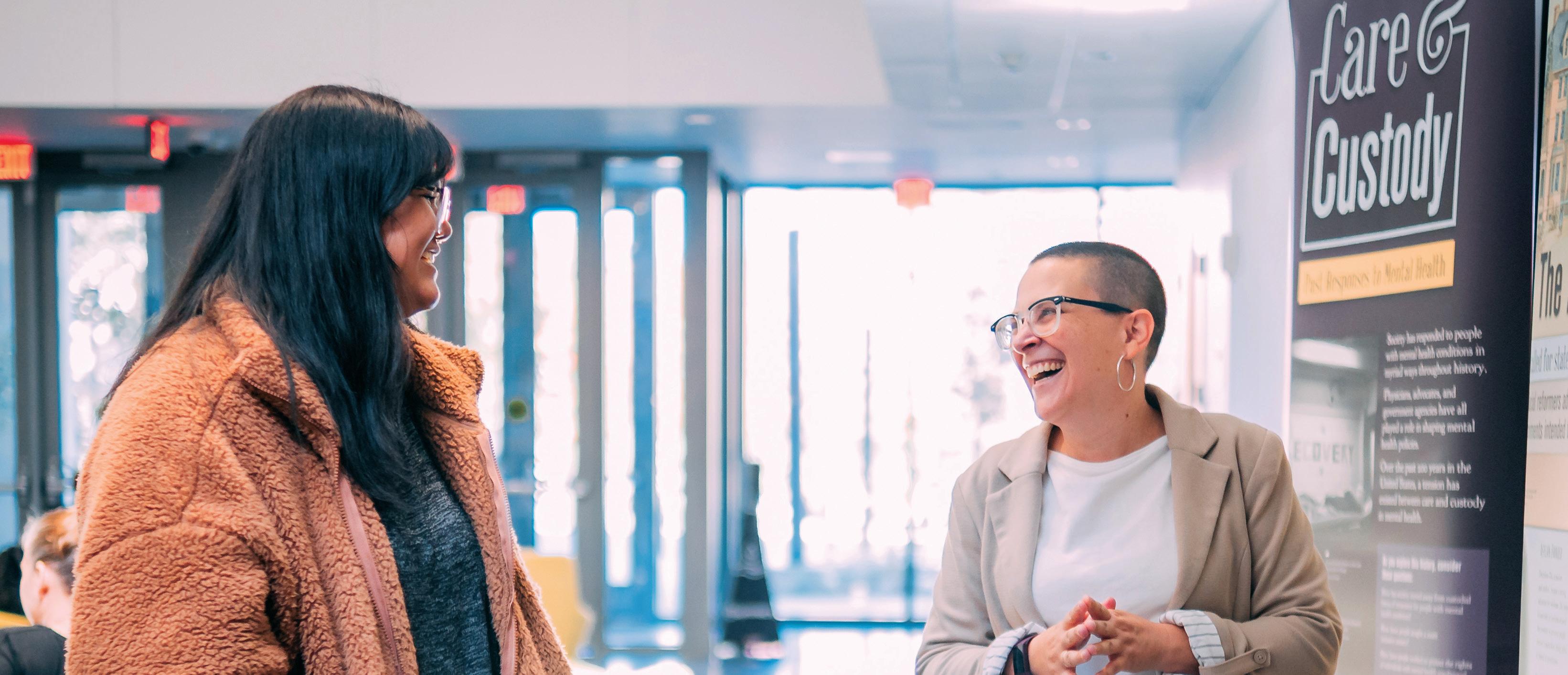



For Dr. Anne Parsons, the issue of how society has treated people with mental health conditions falls well beyond academic interest.
That’s because it impacted her family.
“For me, it is a deeply personal issue because my grandmother’s sister had a major developmental disability,” Parsons says. “She was institutionalized in an asylum for 40 years. At that time, it was often the only option for treating people with major disabilities or mental health conditions.”
The UNCG history faculty member recently curated “Care and Custody, Past Responses to Mental Health” for the National Institutes of Health’s National Library of Medicine.
The banner exhibition and companion website explore the treatment of people with mental health conditions throughout history, especially in the United States, bringing to light the tension that exists between care and custody.
On a national tour, the exhibit has already visited Florida, Illinois, Louisiana, Massachusetts, New York, Pennsylvania, Rhode Island, and Virginia. It arrived in Greensboro on October 23rd for display first in UNCG’s Nursing and Instructional Building and then the Greensboro Project Space downtown.
Visitors learn about the history of mental hospitals since the mid19th century, with depictions including how they were places where care was provided – and where people were kept against their wills.
“I believe strongly that it is important to understand the past in order to change our present,” says Parsons. Her projects, she says, seek to unearth history and build community.
Parsons’ latest book, “From Asylum to Prison: Deinstitutionalization and the Rise of Mass Incarceration after 1945,” co-won the 2019 Disability History Association’s Outstanding Book Award. Research she conducted for the book at the National Library of Medicine in Bethesda, Maryland became the foundation for “Care and Custody.”
“It is incredibly saddening that there were not more opportunities to keep my great aunt in the community instead of in a far-off asylum,” she says.
”She stayed there until 1969, when she died, at the very moment of change.”
Parsons hopes that exhibit visitors will better understand how the country has moved away from custodial forms of treatment toward more inclusive approaches, and how advocates have worked to protect the rights of those with mental health conditions.
“It’s important to take the history seriously because it can lead to change – to finding ways to help close to home, instead of merely incarcerating people.”by Mark Barnes learn more at nlm.nih.gov/exhibition/careandcustody
